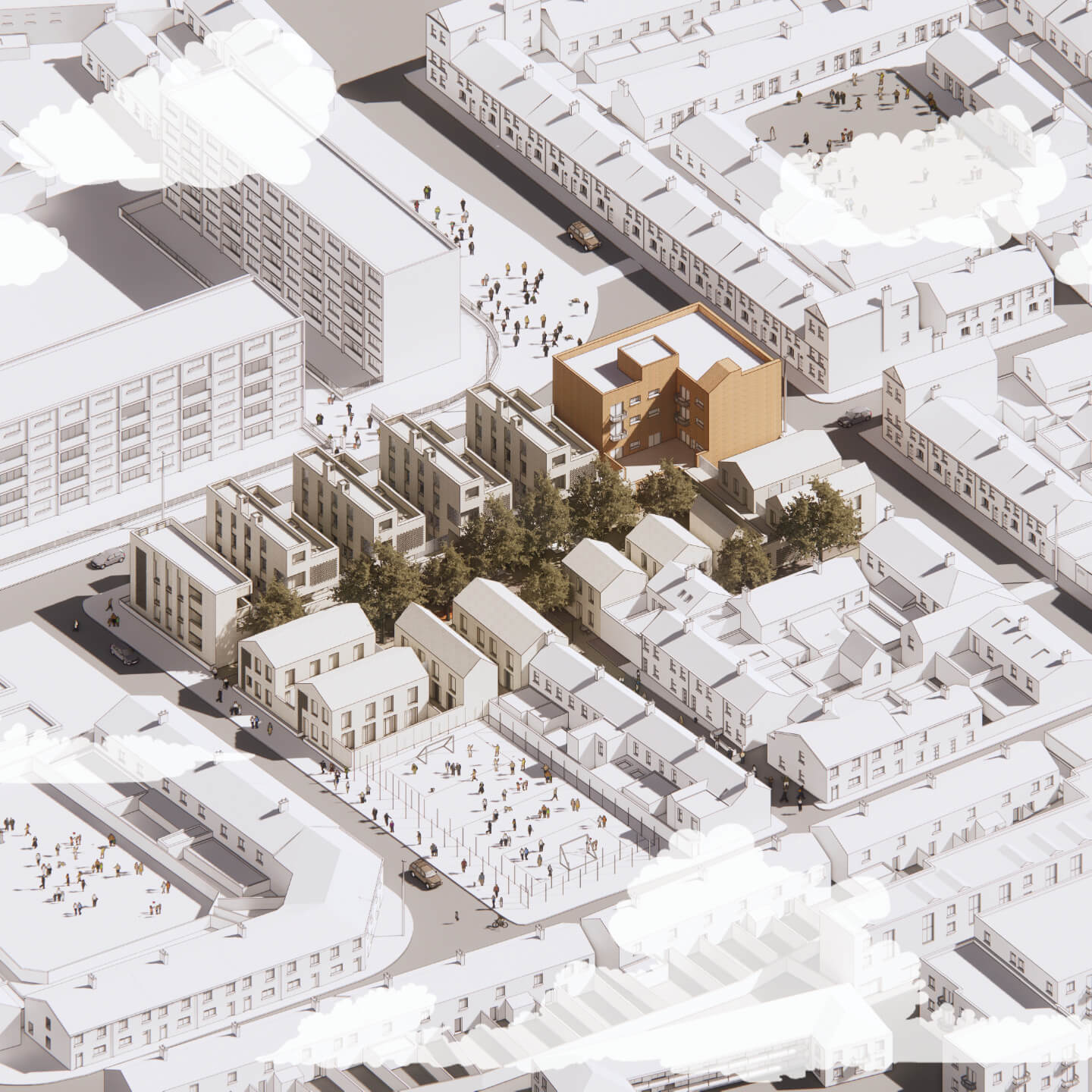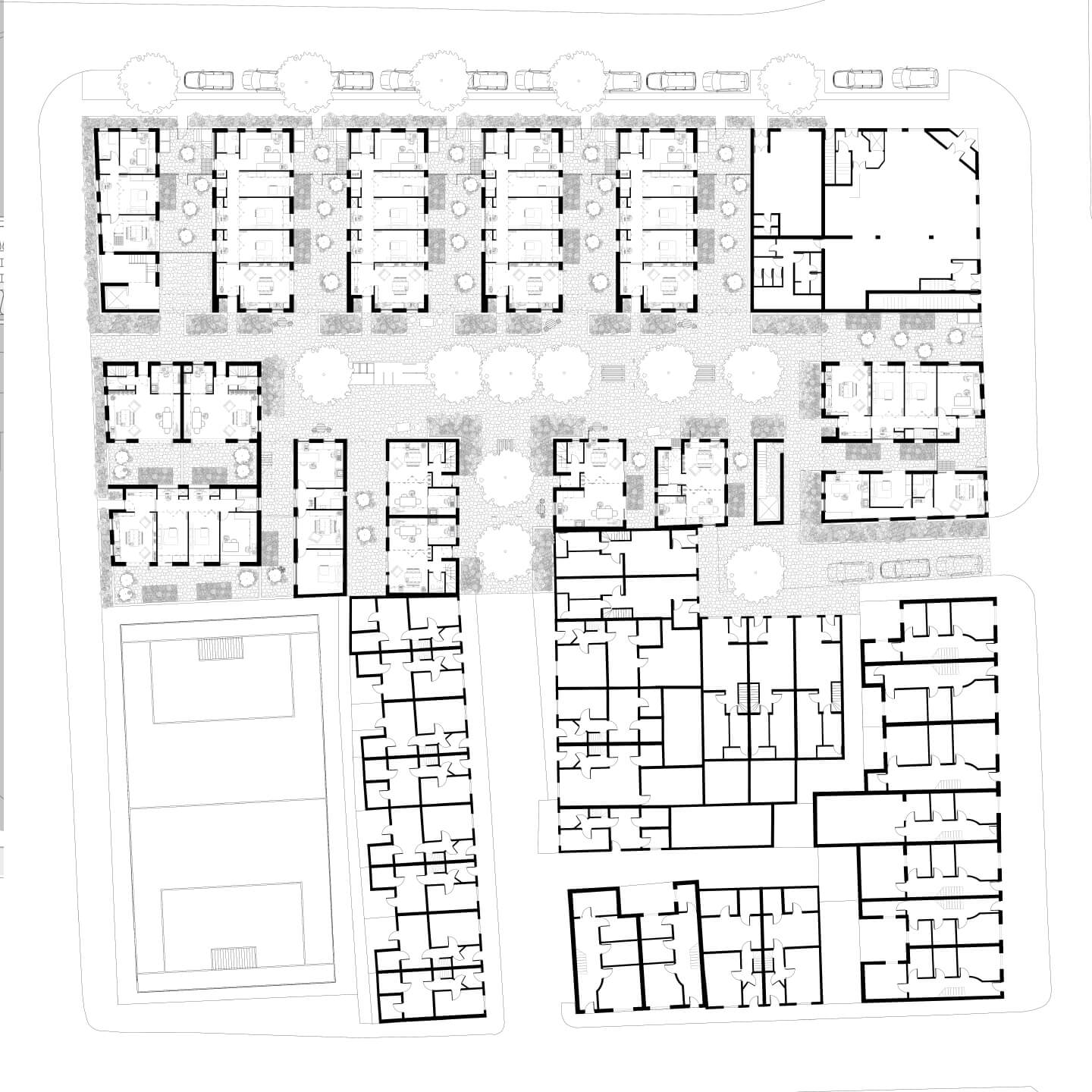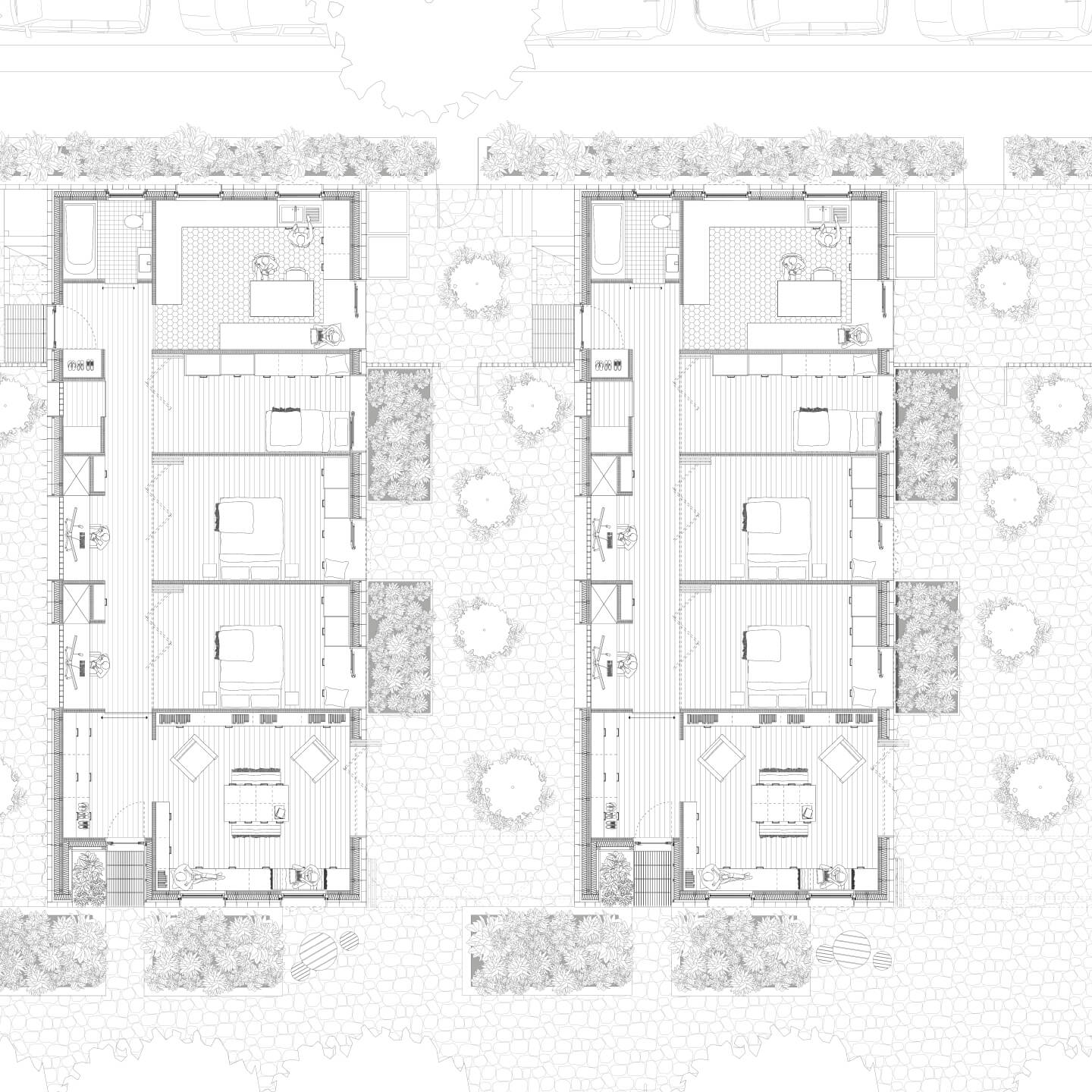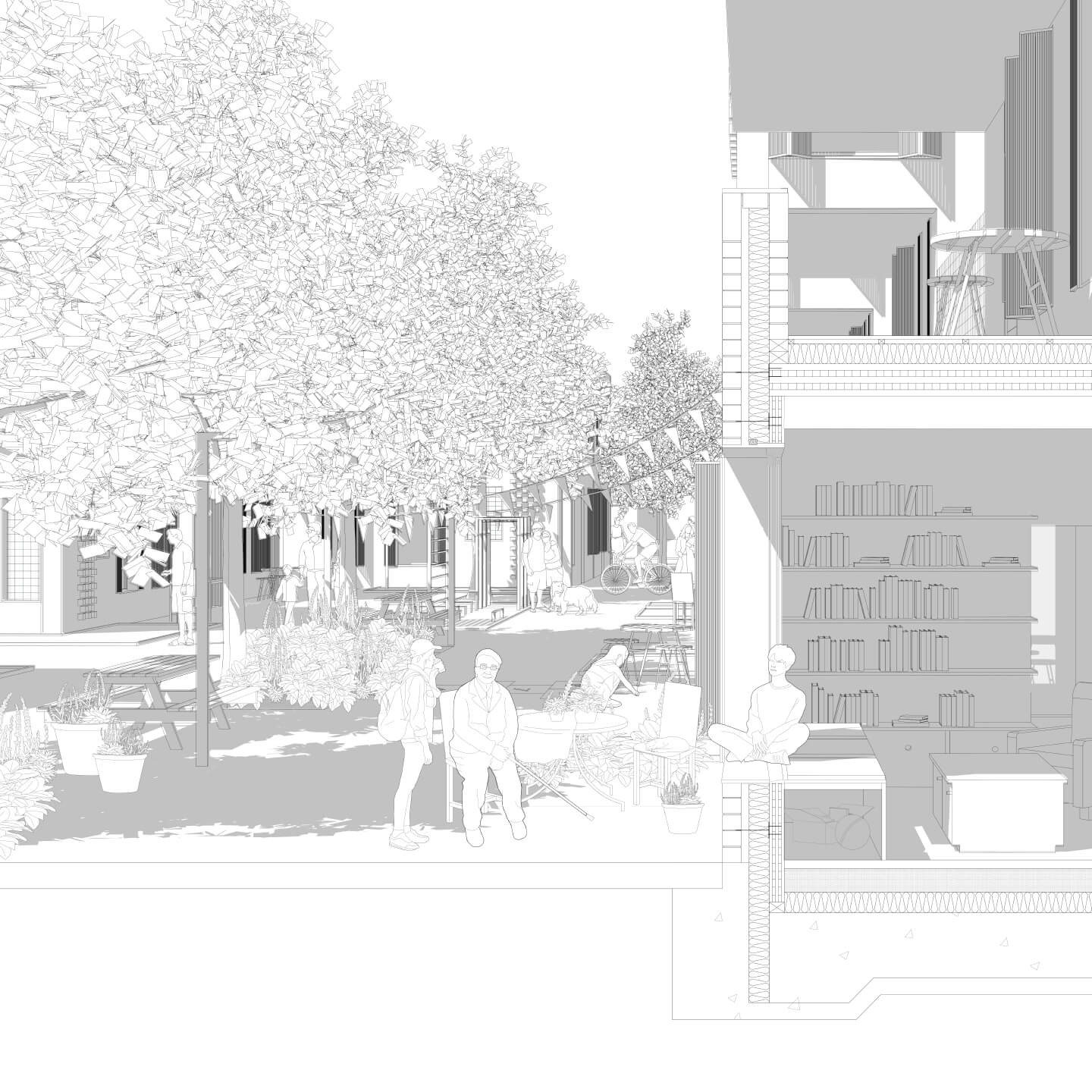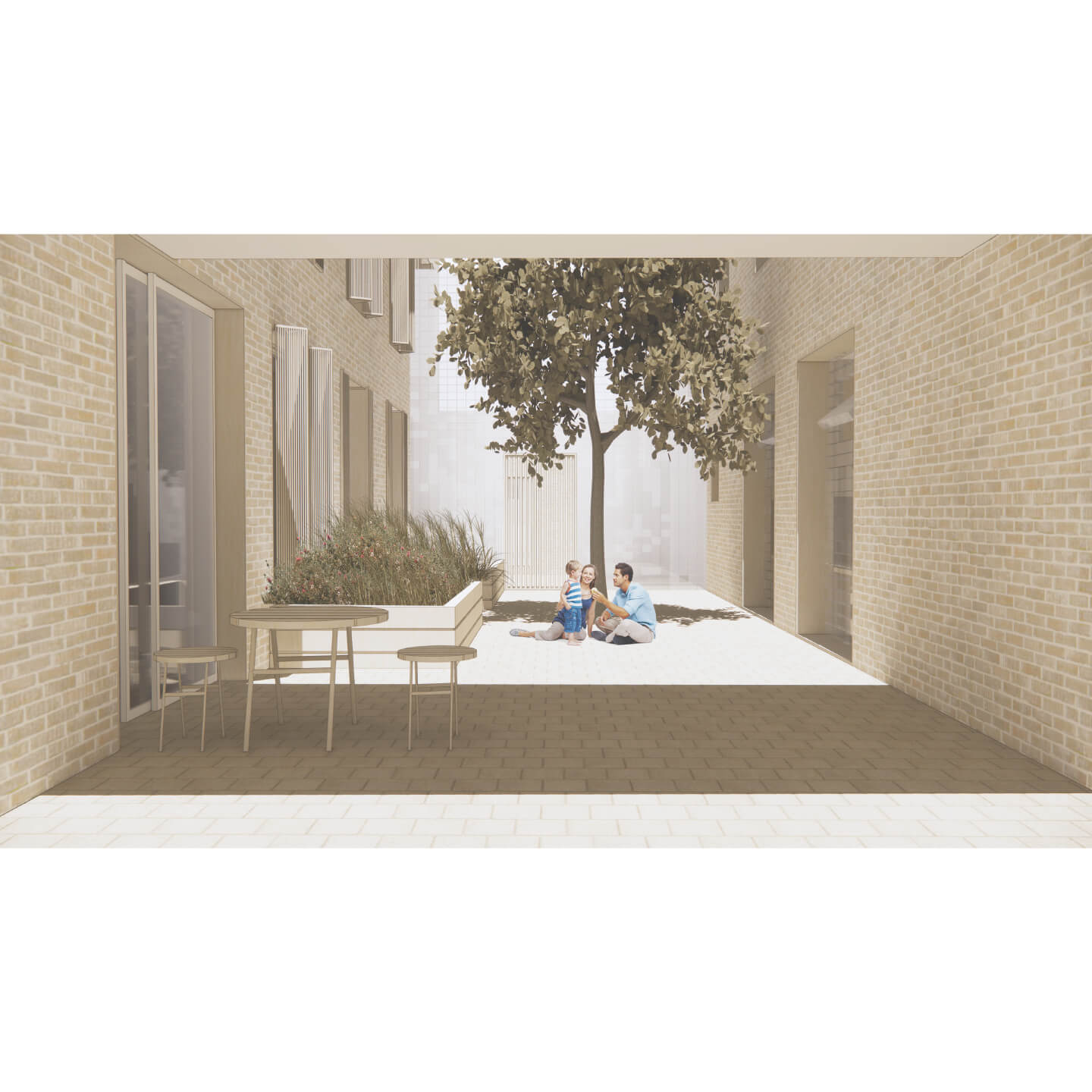André Goyvaerts
As a result of the Covid-19 Pandemic and the subsequent lockdowns, our homes and neighborhoods have come under intense scrutiny. This thesis discusses the ways in which we can review the standard of wellbeing within residential design using scientific, evidence-based approaches to human health.
The environment built around us possess qualities that can impact our well-being. This is especially interesting to me when we discuss our homes. The qualities within our homes can sometimes inhibit our lives, especially during extended periods of time spent within the confines of their walls. In February of 2020, the Covid-19 Pandemic reached the Republic of Ire-land, causing consequential lockdowns to be put in place for the entire population, with exceptions for essential workers being made.
This thesis has been written in the present tense of the pandemic; therefore, it has been developing alongside research on the impacts. A large quantity of our urban housing stock has been found to be unsuitable for 24/7 inhabitation. An article by the Irish Times, written by Gemma Tipton highlighted many of the negative conditions experienced by the population living in lockdown over the course of the pandemic. (Tipton, 2020) Niall McCullough and Valerie Mulvin of McCullough Mulvin Architects discussed the way in which confinement will sharpen views on the way in which we use space, how soundproof our walls are and the negative consequences of poor planning and layout. Peter Carroll of A2 Architects stated that:
“When your daily commute shrinks to the distance between your bed and your kitchen table, the world can seem pretty small.”
The conclusion of this research then informed the design of a housing scheme, centered in a neighbourhood within the liberties, co. Dublin. The Pimlico Housing scheme was designed to be a review of the current standard of wellbeing in residential design. The overarching quest within this design is to implement methods that we could employ to strive for a healthier environment to live in. The study establishes the importance of outdoor space, private space, work life and opportunities for encounter. The quality of light, ventilation, sound and materials cannot be undermined. We need homes that can provide opportunities for healthy living, co-operation and social interaction. We need better spaces for our urban families.
Author: André Goyvaerts.
Location: Dublin, Ireland.
University: University College Dublin.
Year: 2021
